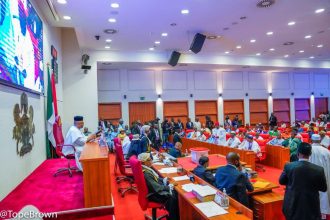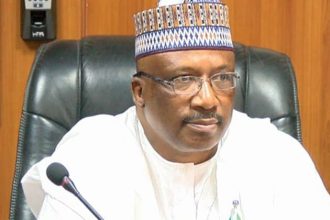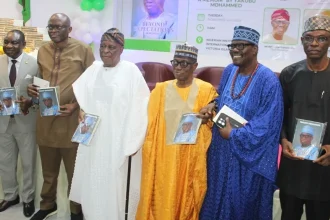By Chuks Oyema-Aziken
President Bola Tinubu has approved the National Carbon Market Framework and the activation of the Climate Change Fund, aiming to unlock $2.5-3 billion annually in carbon finance. This move positions Nigeria to leverage opportunities in the global carbon market and enhance climate resilience.
The Senior Special Assistant to the President on Media and Communications, Office of the Vice President, Stanley Nkwocha disclosed this in a press release.
He said the approval was granted during the second meeting of the National Council on Climate Change (NCCC), held Thursday evening at the Presidential Villa, Abuja.
Vice President Kashim Shettima, presided over the meeting on behalf of the President.
Shettima noted that the initiative demonstrates Nigeria’s strong commitment to leveraging emerging opportunities in international carbon markets and driving climate-resilient investments across key sectors
The President emphasized that climate action represents both an environmental responsibility and an avenue for economic transformation. He highlighted that addressing climate change offers opportunities for new investments, job creation, and innovation across energy, agriculture, and industry.
“Nigeria stands ready to assume its rightful place as a global leader in climate action, ensuring that our voice and realities are respected in international climate negotiations,” the President stated.
The National Carbon Market Framework is expected to help Nigeria generate substantial funding for mitigation and adaptation projects, boosting green-economy initiatives nationwide. Tinubu also reaffirmed that climate action remains central to his administration’s development strategy, adding that the government will continue to pursue policies that protect citizens, strengthen the economy, and attract green investments.
Ahead of COP30 in Belém, Brazil, the President outlined Nigeria’s commitment to forging international partnerships to finance climate-resilient infrastructure and adaptation efforts.
Director-General of the NCCC, Mrs. Omotenioye Majekodunmi, disclosed that Nigeria’s recent climate reforms have enhanced its eligibility for new international financing windows. She added that the operationalisation of the Climate Change Fund will enable the country to attract and deploy climate investments efficiently.
The Minister of Finance and Coordinating Minister of the Economy, Wale Edun, also endorsed the council’s proposals, noting that Nigeria must strategically position itself within the expanding global carbon market. He assured that the Finance Ministry would support the initiative through a quarterly climate-finance tracking dashboard to ensure transparency and efficiency in managing green funds.
The NCCC Secretariat reaffirmed its readiness to provide the technical leadership necessary to translate national climate ambitions into measurable actions, pledging continued coordination across ministries and all levels of government


















